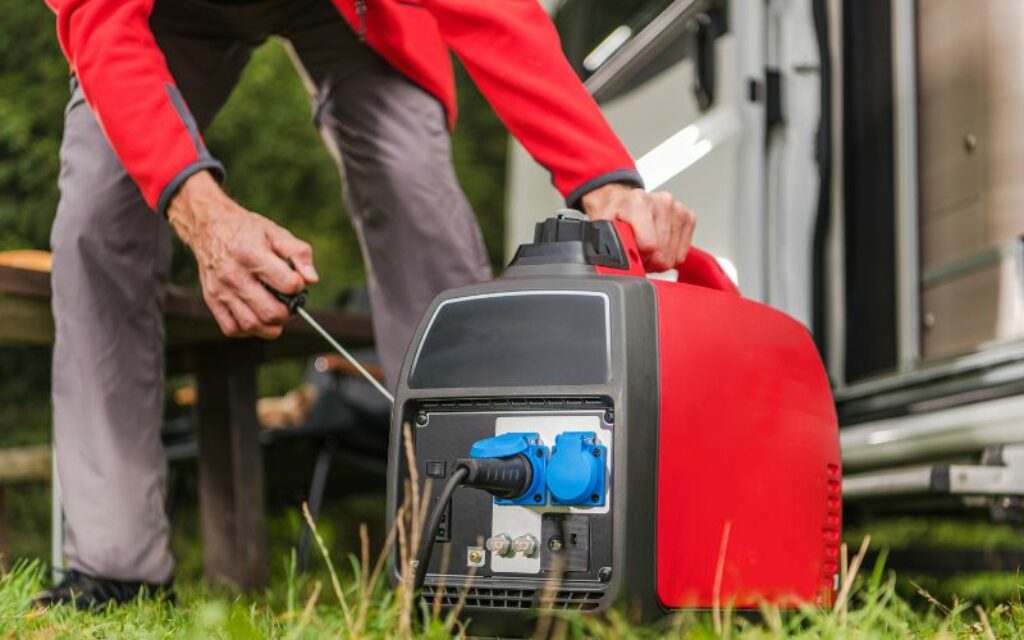A power outage is also known as a power failure or blackout. It refers to an electrical power loss, either short or long-term. This situation could affect homes, buildings, or an entire city.
The causes of power outages are due to several factors, including natural disasters such as heavy rains, heatwaves, flooding, and severe winds that can affect the power grid, lines, and equipment. Moreover, this can also be due to human error and overload. But do you know that you can prepare for a situation like this?

This article will teach you how to build a power backup plan for your home in case this scenario happens:
- Figure Out Your Power Needs
There are several power backup solutions for your home. But for you to choose, you need to determine your power needs. You can ask for help from a certified electrician to assess your home’s electrical equipment power consumption.
Once assessed, you may have decided to have a portable generator as a quick and easy source of emergency electrical power. One thing about this portable generator is that you must purchase and set it up before any blackout occurs. When an outage strikes, retailers tend to run out of generators due to increasing demand.
To be more prepared, consider having a long-term standby generator or another portable backup power for your home for a reliable backup solution. After deciding which one you will use, have it inspected regularly with proper maintenance.
- Evaluate Runtime
In building a power backup plan, you should choose a more robust solution for emergency power. To do this, you need to ensure that the inverter that converts direct current to alternating current can supply stable and adequate power without distortion and can get easily charged. It is also essential to choose a power backup solution with the latest technology that you can use efficiently.
If you want to provide consistent electricity for your home once a power failure occurs, you must consider using an uninterruptible power supply (UPS). These supplies or devices can integrate with your network, bridging the gap between the outage and backup power. Most importantly, these can operate quite instantly, unlike a portable or standby generator that can run with a slight delay.
- Consider The Cost
When planning, you are likely to consider your budget. If you want to save tons of money and only power small electronic devices, consider using a portable power station. You can also use UPS if you want to because it is generally inexpensive.
If you’re using back batteries, don’t compromise on buying cheaper ones with shorter lifespans. For instance, you discovered that lead batteries are more affordable than lithium. However, it only has a shorter life span. Hence, decide and choose only the most reliable option for you. You can go for cheaper solutions but ensure that it’ll be a trusted power backup system that will help you during a blackout.
- Use A Sustainable Approach
All power backup solutions are helpful and have their advantages and disadvantages. But if you’re looking for long-term reliability, you can always switch to alternative renewable electrical sources such as roof-top solar power arrays. This practice is a walk towards environmental sustainability that offers no pollution and system power provision that you can use for light to heavy-duty applications.
In addition, solar power can provide consistent daily power. It is also cheaper than before, and you can avail of incentives when purchasing panels and other related hardware to set it up. It also has an extrasolar battery where you can store excess solar electricity that you can use for another upcoming emergency. Most importantly, you should know these batteries’ cost, capacity, and life span.
- Look For Professional Help
Installing and maintaining your power backup solutions takes time, money, and effort. Furthermore, it opens vulnerabilities and may cause higher costs. Therefore, it is ideal to ask an expert electrician.
Suppose you decided to install a backup generator. It is recommended to have a professional technician install the equipment, as it requires knowledge of electrical systems and can be dangerous if not done properly. To find out more check out https://generxgenerators.com/
Conclusion
Having a power backup plan in place can provide peace of mind and ensure that you and your family are prepared for any potential power outages. Of course, there are instances where power shortages and other factors affect the supply. Therefore, it is necessary to be more proactive and act accordingly based on your effective power backup plan for your home. That way, it will minimize the impact of a power outage on your household.